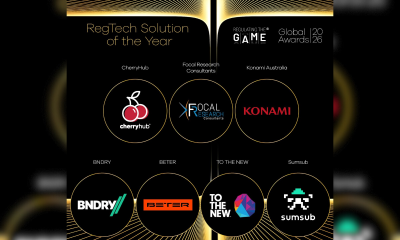Interviews
OKTO: As cashless becomes king, land-based gaming requires an industry-specific solution
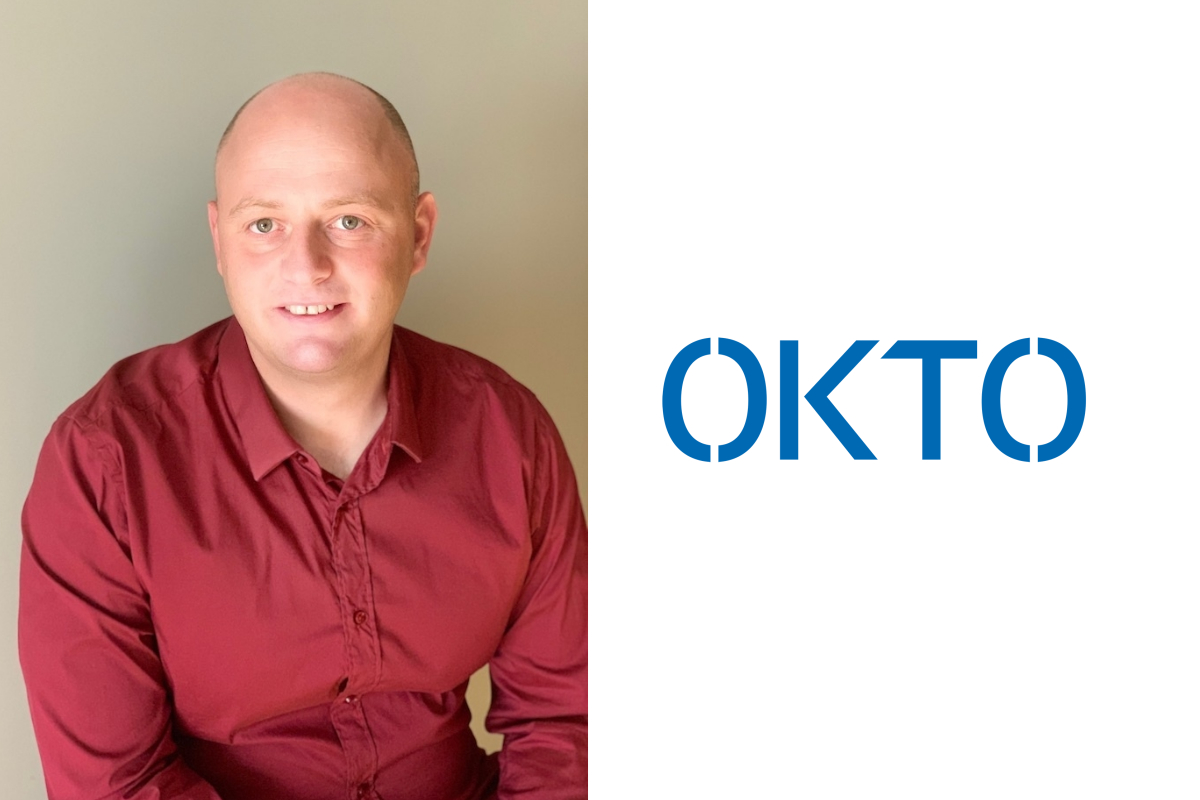
As a provider of digital payments for the entire high street, fintech firm OKTO stands out as having a unique cashless solution that caters to the nuanced needs of the UK’s highly regulated land-based gaming sector. As demand for such solutions accelerates due to the global pandemic, Dimitar Shopov, OKTO Wallet Commercial Owner, explains how crucial it is that operators pick a partner that understands the specifics of their industry, whilst also evolving its technology to keep up to date with global fintech trends.
On a global basis, how busy has OKTO been since the start of the pandemic? Has there been a notable increase in interest and urgency for the installation of cashless systems?
It is a question we are increasingly asking ourselves as a society: “Do we still need cash?” The decline in the use of cash and the concurrent rise in digital and card payments has been charted for years, but the pandemic definitely marks the real beginning of the end of cash in many mature markets like the UK who is a fast adopter, ushering the interest and urgency toward cashless systems.
A combination of contributing factors play a role here; tech advances, measures from authorities, and actions from big retailers across the world that have already adopted the use of digital payments as a safer method to maintain social distance and contain the spread of the COVID-19. Cashless systems have increasingly become the new norm, simply due to the fact that society demands it.
Now, all our partners are asking us how we can help them transition to cashless operations and the driver is always the same; the ability to respond to their users’ demands, leverage user services and experience and reduce cost and risk of cash. And that is what we deliver with our OKTO.WALLET solution.
Is the UK a market you are monitoring in respect to its uptake of cashless payments?
The use of cash has been falling around the world and the pandemic along with the fear of infection from bank notes are accelerating the trend away from cash towards digital payments. The UK ranks higher than all other countries in the EU when it comes to cashless payments for a few years now.
Naturally, not everybody is ready for a digital switchover, but it’s apparent that more and more people turn to digital payment options. Cash’s share of in-store transactions in the UK plummeted from 45 percent in January to 23 percent in July, per a report from Square that analyzed data from hundreds of small- and medium-sized businesses (SMBs) across the UK while the digital will likely retain greater popularity. Therefore, as a fast adopter, the UK was a natural fit for us to invest in this market, creating a powerful solution, designed to address the needs of the Pub & AGC sector with the main mission to be the enhanced user experience.
And here comes the question: Will we ever have a digital alternative that offers the same mix of convenience and freedom as cash? For me the answer is yes. Contactless forms of payment have created a new level of convenience for people around the world, and this has provided a real boost for certain industries, from gaming and betting to hospitality sectors. OKTO.WALLET solution is not only the safe and fast transactional tool that both users and merchants demand but it also offers users the freedom to move and use their funds as they wish instantly.
How do you think Covid-19 has accelerated this increasing disdain for products and services that require cash payment? Does another round of government restrictions in the UK spell further worry for cash-only businesses?
A few years ago, while I was walking through London, I noted some signs dotted around a pub that announced the complete move from cash to customers: “Apologies, but it is the digital age.” Don’t forget that there are benefits in digital payments that make life easier not only for the pubs but for all retail businesses. Think about it, at the end of the night whatever the retail business is, the people there need to count up endless piles of coins, managers need to transfer bags of cash to be lodged at the bank, also there are the additional charges to processing cash transactions versus digital ones and so on. All these can be eliminated with the digital cashless payments.
The trend was there and Covid-19 came and sped up that trend. All the cashless benefits along with the fact that banknotes and coins have been identified as a medium for transmitting the pandemic is clearing the way for another stellar rise in digital payments.
I cannot see the crystal ball and make the prediction for further pandemic-related worries for cash-only businesses, but when you hear announcements from World Health Organization back in March, recommending people to turn to cashless transactions to fight the spread of Covid-19, and rapidly a number of governments and retailers across the world took action, you can realize the evident concern. This shift should not be underestimated, as cashless transactions become the norm and rapidly impact niche industries like hospitality and gaming.
A cash-free future is getting closer, and the new lockdown is further accelerating that shift, but this change won’t be a 100 percent switch over night, there will be a prolonged period cash and digital payment options living side by side. After all, consumer payment choice is one of the most essential ways to maximise a merchants revenue potential, and operators should ensure that they will offer their customers the same level of choice in payment options as other sectors of the leisure industry, offering cashless facilities and we are here to assist operations in this transition.
Despite being a fintech provider to many markets across the world, OKTO clearly sees gaming as a particularly important one. How does this focus on gaming, whilst also offering all the benefits of neo-banks such as Monzo and Revolut, put OKTO in a better position to serve the market than competing cashless solutions in this space?
There are plenty of cashless solutions available and it can be confusing at times, what and why different digital solutions are better suited to certain sectors, and this is especially true in gaming.
But, it’s crucial for any operation to back the right horse. It’s imperative to choose a reliable solutions partner and few providers are focusing on the nuanced needs of gaming operators, especially for land-based, which make us unique in what we do. At OKTO, we want to assist our partners to make informed decisions for both their businesses and customers. Now with the industry to face more challenges than ever gaming operators need a payment service to ease the burden rather than add to it. Industry-specific, mobile-first and open-loop are the keys here.
A payment provider with a mobile payment platform, tailored for the gaming industry that aims to reduce payment friction, enhance the user experience, allowing real-time e-money fund transfer in a simple, secure and fast way is the answer to their quest. When this comes with a universality, then this is a sure bet, as consumers can use, move and collect their funds anywhere, not just for gaming.
Having a dedicated team on gaming, are you confident OKTO is well-equipped to cater to the needs of such a heavily regulated industry, where the expectations for compliance, data protection, and social responsibility are higher than any normal consumer market?
It’s vital to choose the right partner as I previously said; one that utilises field-proven technologies and has the extensive know-how of key integrations across all physical touchpoints of a gaming venue ranging from gaming machines to Self-Service Betting Terminals and Cash Redemption Terminals as well as a strong understanding and proven ability to integrate the wallet with digital touchpoints. We have exactly this 360 approach through our OKTO.WALLET solution, that the operators need to get ahead.
Heavily regulated industries are not unknown to us. We have an extensive understanding of the current climate; and we have developed solutions that ease compliance issues. Utilising the highest level of data encryption, we ensure all users data are fully encrypted while also all fund transfers are audited using market-proven algorithms to detect fraudulent activity including not only Money Laundering but also game manipulation and cash peripheral attacks.
Social responsibility is also at the top of our minds. With tools available through the OKTO app, we cover the social responsibility quota, incorporating a strict age verification process, time-out periods, betting limits, and profit and loss calculator tools that further enhance consumer protection as well as a dedicated section embedded in the app with national problem gambling helplines.
Powered by WPeMatico
Interviews
Scaling innovation through the launch of Tequity Publishing
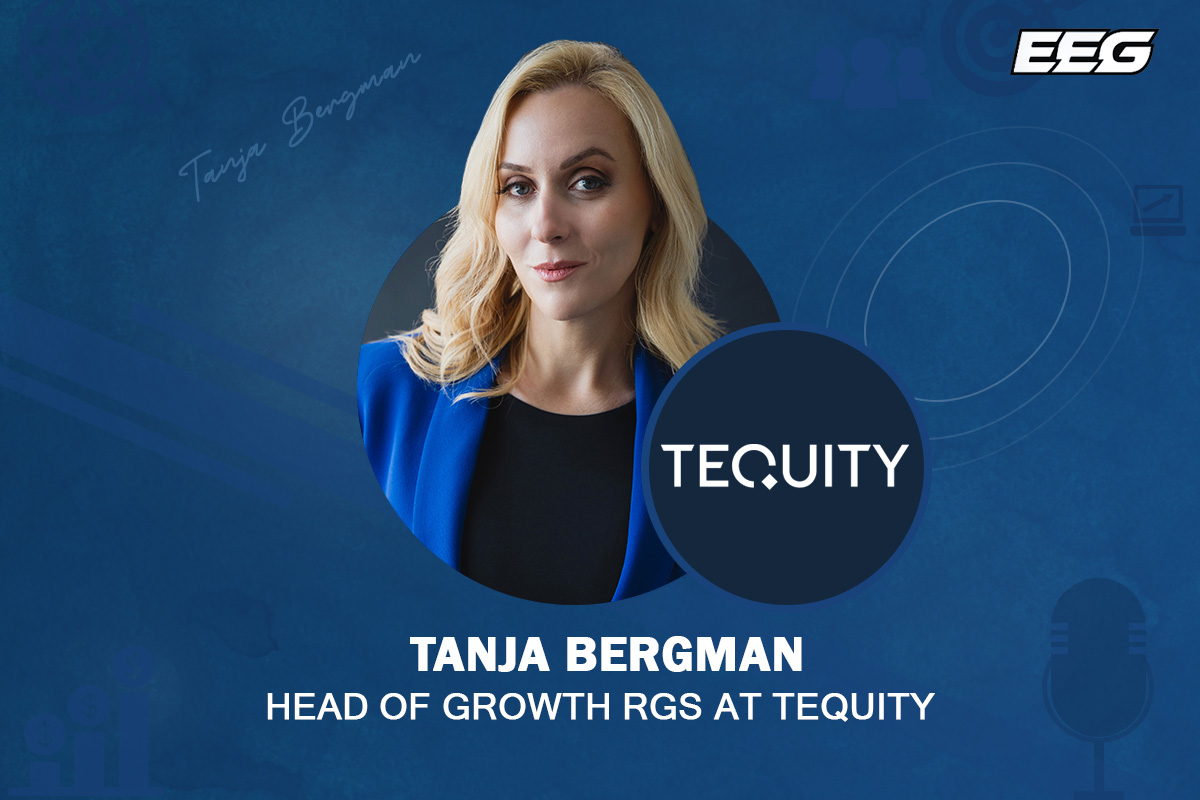
Following the announcement of its new publishing vertical and the successful debut of Royal Drop, we sat down with Tanja Bergman, Head of Growth RGS at Tequity, to discuss how this new arm is set to dismantle technical barriers for ambitious studios and why scalability is the new frontier for the ‘Burst Games’ genre.
Tequity has just officially launched its Publishing vertical. What was the primary catalyst behind this move?
The industry is currently in a fascinating place. There is no shortage of creative talent among studios, but there is a massive technical bottleneck. We have seen so many ambitious studios with incredible concepts – especially those moving beyond traditional slots – who have been getting bogged down in terms of getting those concepts out into the marketplace.
The catalyst for Tequity Publishing was simple. We wanted to break down those technical barriers. By handling the infrastructure, distribution, and compliance frameworks, we allow studios to do what they do best, which is build outstanding games. It’s about speed-to-market without compromising on the quality or the vision of their content.
The launch coincides with the release of Royal Drop. How does this game, and the partnership with Mirror Image Gaming and The Fortune Engine, showcase what Tequity Publishing is all about?
Royal Drop is the perfect proof of concept. It’s a collaboration that highlights three important pillars of modern game delivery. You have Mirror Image Gaming bringing that fresh, video-game-influenced Burst Games energy, The Fortune Engine provide the math tools and templates, and Tequity Publishing offers the global scale and distribution pathway.

It shows that when you remove operational friction, you can create a game-first experience that appeals to a new generation of players who want something more interactive than a standard 5×3 reel.
Tequity Publishing offers two models: RGSaaS and RGS-to-RGS. Can you walk us through the strategic benefits of each?
Flexibility is key, because no two studios are at the same stage of their journey. The RGSaaS model is our full-service offering. It’s designed for studios that want to focus 100% on the creative side. We provide the entire infrastructure and publishing framework and it is essentially a business-in-a-box for game creators.
The RGS-to-RGS model is a more streamlined, tech-first approach for studios that already have their own RGS but lack the distribution muscle. It allows them to plug into our growing operator and aggregator network instantly. Both models are built on the same philosophy: helping studios reach parts of the market they otherwise couldn’t access on their own.
You mentioned reaching new generations of players. How does this vertical specifically empower studios to innovate in ways they couldn’t before?
When a studio is concerned about how they are going to integrate with a multitude of different operators or how to navigate complex jurisdictional requirements, they tend to play it safe. They stick to what they know.
By taking that weight off their shoulders, we give them the opportunity to be brave. Studios like Mirror Image Gaming are pushing the boundaries of modern iGaming, taking influences from the video game world. This is exactly what the new generation of players is looking for. We provide the scalability so that these niche, innovative ideas can achieve mass-market impact.
It’s been a busy period for Tequity, following the success of your Originals series and the iBankroll partnership. How does the Publishing vertical fit into the broader Tequity roadmap for 2026?
It’s all part of becoming the ultimate technology partner for the gaming industry. Whether it’s our streamer-friendly Originals or our Bankroll-as-a-Service offering, the goal is to provide scalable, customisable solutions. Tequity Publishing is the natural evolution of that mission. We aren’t only providing the tools anymore, but also the pathway to the player. Looking ahead, you can expect a series of further launches through our three-way collaborations. We’re proving that the barrier to entry for innovation has never been lower.
Finally, for studios looking to scale quickly, what is your main message to them?
Don’t let technical noise drown out your creative signal. If you have a game concept that breaks the mould, you shouldn’t have to spend years building the distribution architecture to get it seen. That’s what we’re here for. We want to help you launch at a speed and scale that matches your ambition, so that you can make a significant splash in the industry.
The post Scaling innovation through the launch of Tequity Publishing appeared first on Eastern European Gaming | Global iGaming & Tech Intelligence Hub.
BetMGM
Breaking America with BetMGM
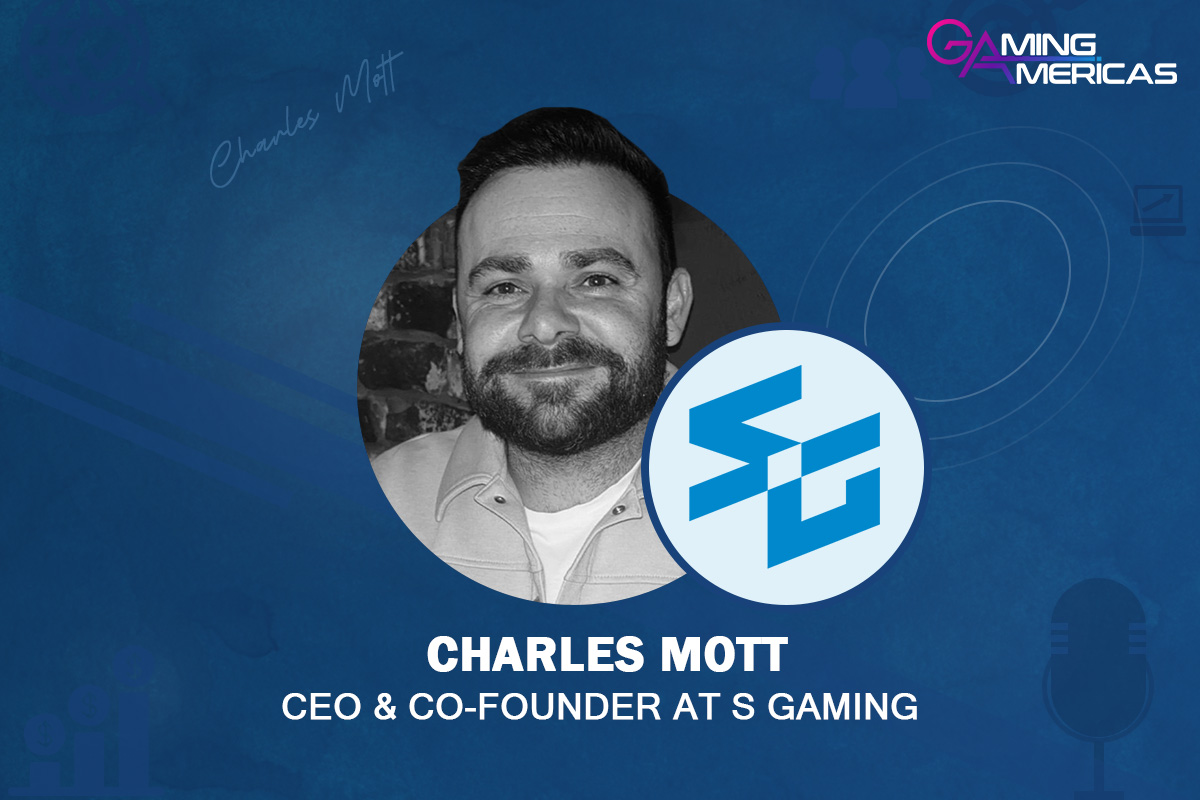
We speak to Charles Mott, CEO & Co-Founder at S Gaming, about the provider’s move into the US market with BetMGM and why more casual gameplay hits the mark with players stateside
Congratulations on your deal with BetMGM in the USA. Why is this such a milestone market launch for S Gaming?
The deal with BetMGM marks our hotly-anticipated launch in the US market, and sees our games go live to players in core regulated states such as New Jersey, Pennsylvania, West Virginia and Michigan. We see huge potential for our content in the North American market, and to make our debut with such a high-calibre operator is a testament to this. The US is still just finding its feet as a regulated online casino market, and our games, with their focus on sustainability and high entertainment, are the perfect fit for audiences who are used to land-based slots and are increasingly moving online. They are simple, easy to understand and play, and ultimately deliver tons of fun over longer playing sessions – just like the slot machines found on the floors of casinos in Las Vegas and beyond.
Just how important was it to go live with a tier-one operator like BetMGM? And how will the deal allow you to quickly build momentum in the US?
It’s mission critical. Going live with BetMGM allows us to build immediate trust with players, tap into a large and loyal playerbase, and simultaneously enter multiple regulated iCasino states at the same time. Now that we are up and running with BetMGM, we are turning our attention to striking partnerships with other operators active in the market. It’s pretty much the same blueprint that we’ve followed in our home market of the UK where we are now live with all but a handful of brands – something we have been able to achieve in a little over two years. We know the US is a slightly different market, but we are confident in our approach to game development and, as we gather more data on how US players interact with our games, will use this feedback loop to guide our product roadmap going forwards so that each title is better than the last and more suited to the preferences of US players.
You mentioned that your games are aimed at more casual players. How does this align with the preferences of US consumers?
If you walk onto the gaming floor of any Las Vegas casino, you’ll see row after row of slot machines. Increasingly, these machines are designed to keep players entertained for longer through gripping gameplay and regular wins. A lot of online slot content delivers high risk/high reward gameplay, where players can quickly clear through their balance as they hunt down big wins – wins that don’t land all that often. In a market where operators care deeply about retention and lifetime value, games that keep players spinning for longer really matter. Our approach to producing sustainable, fun games for players in the UK and Europe has allowed us to not only stand out but to engage players at scale, and we are confident players in the US, especially those who enjoy land-based slotting, will also be drawn to them at scale.
Has launching in the US been a major undertaking for S Gaming, or did it prove to be plain sailing for the most part?
When planning our move into the US market we identified two routes. We have our own remote game server, so we could build on that, secure licences in each state we wanted to enter, and then deploy our content directly with operators. The other option would be to work with a third-party RGS provider that already has the licences and integrations we needed. While the first option might sound like the best, in reality, especially for a smaller studio, the cost of and resources required for securing individual state licences can be prohibitive. So instead, we joined forces with Gaming Realms as they have the cutting-edge RGS and licences (in both the US and Europe) we were looking for. This means we simply need to build a US version of each game on the Gaming Realms RGS and can then deploy content with the wide range of operator partners they are connected with in regulated iCasino states across the US.
Tell us more about the initial run of games you’ve launched with BetMGM.
We’ve launched the partnership with Barnyard Bash Chicken Chase which will be followed by Triple 7 Jackpot in February and Cat and Mouse Collect in March – with one new game a month to follow as we build out our US portfolio. If players were to try just one of our games, it would be Barnyard Bash Chicken Chase. It gets players clucking as they spin the reels, collect Eggs and add them to the growing Nest – the more eggs collected, the bigger the Nest Egg becomes. Not only that, Eggs can randomly activate the matching colour-coded Nest Egg and award entry to the Chicken Trail feature, drop Egg-stra Free Spins or lay an Instant Prize.
But once they’ve tried it, they’ll definitely want to take Triple 7 Jackpot for a spin. This classic slot is dripping in neon action – the Triple 7 feature is always on screen but is locked until a spin lands three Bonus 777 symbols. This unlocks the feature with on spin awarded, giving players a shot at the 500x Jackpot prize. Free Spins are also up for grabs with seven Free Games awarded when three Scatters land in the base game.
Finally, Cat and Mouse Collect is a playful, feature-rich slot built around a simple but engaging Collect mechanic. Players pin the reels, collect up the cheeses and feed the hungry mice until they’re fit to burst. Green plates will serve up an instant prize, Blue will start the wild and wacky Cheese Chase and Red dishes out some feisty Free Spins. With regular feature triggers and plenty of on-reel interaction, it’s designed to keep players engaged from spin to spin without relying on extreme volatility.
What does success in the US look like for S Gaming over the next 12-18 months?
Success for us isn’t about one big hit, it’s about becoming a trusted, widely-distributed supplier in regulated iCasino states. Over the next year we want to significantly expand beyond BetMGM, roll out a steady pipeline of US-optimised titles and build the kind of player data and
operator relationships that let us grow sustainably. If players in New Jersey, Pennsylvania and Michigan are regularly choosing S Gaming titles as part of their core rotation, then we’ll know we’re really breaking into the market.
The post Breaking America with BetMGM appeared first on Americas iGaming & Sports Betting News.
3 Fortune Trees.
Kendoo interview: Can stability be the new innovation?
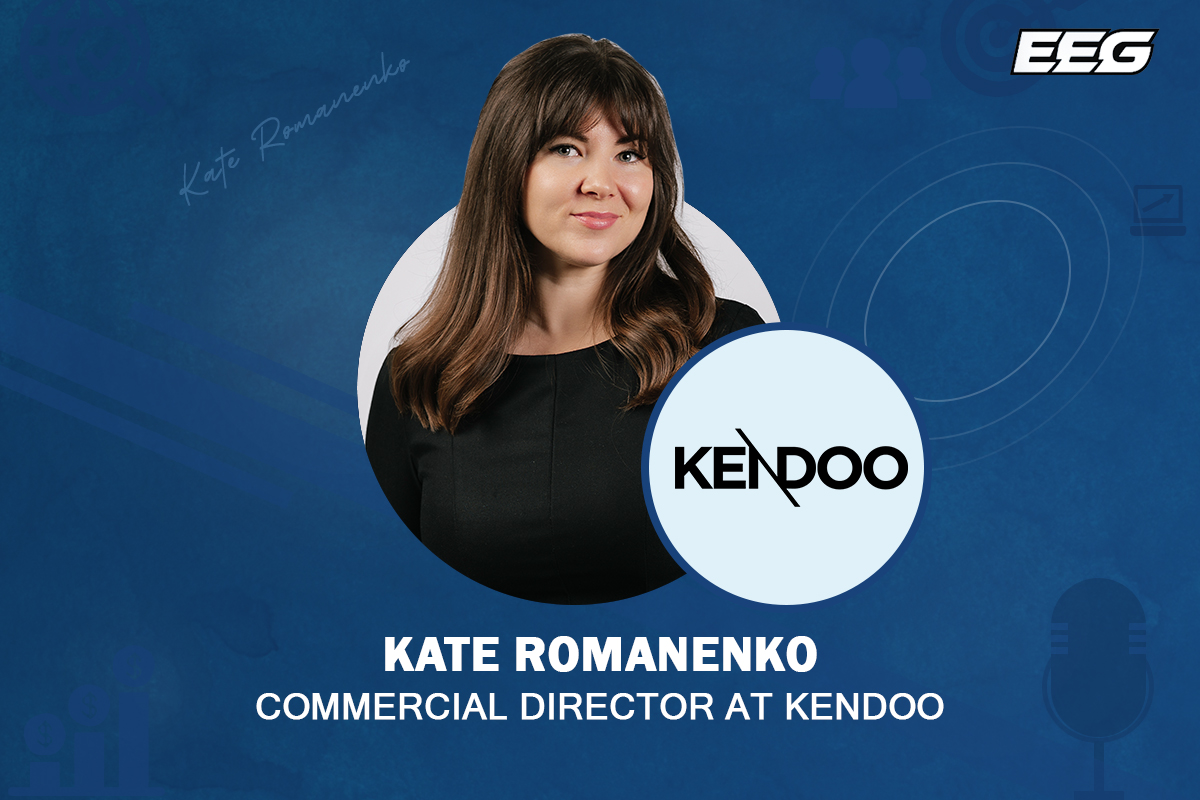
What innovation consists of within the slots industry is often debated. While there are often calls for more groundbreaking features to be introduced, the reality is that the progression of trusted and popular concepts is what drives the industry forward with new releases.
We caught up with the Kendoo’s Commercial Director, Kate Romanenko, to understand more on how long-term retention is often underpinned by controlled evolution of proven concepts, as shown in the company’s success over the past year.
In an industry driven by novelty, why do you think long-term consistency is becoming just as valuable as innovation?
In the competitive iGaming market, everyone is obsessed with “what’s next,” long-term consistency has become a signal of trust. Operators are increasingly cautious: they want games that perform predictably over time, not just those who grow only on launch. Controlled evolution, like we showed with 3 Pots and 4 Pots games, such as 3 Fortune Trees, 3 Gates of Pyramid, 4 Egypt Scarabs etc., proves that you can refresh mechanics and visuals without breaking what already works. Innovation still matters, but when it’s backed by performance data and retention, it becomes scalable, sustainable value rather than short-lived hype.
How does Kendoo ensure technical and gameplay stability across its growing portfolio, especially as it scales into new markets?
At Kendoo, we build on a select set of well-tested core mechanics, evolving them thoughtfully rather than introducing unproven systems. Each game reflects our research, experience, and deep understanding of player needs. This approach lets us expand into new markets without compromising reliability, delivering operators consistent performance and players a smooth, familiar experience they can trust.
What role does reliability play in building strong partnerships with aggregators and platforms?
Reliability is the foundation of trust with aggregators and platforms. When integrations are stable, launches are predictable, and games perform consistently, partners can scale with confidence. For Kendoo, reliability reduces operational friction on their side, fewer incidents, faster rollouts, and clearer performance expectations. Over time, this turns a supplier relationship into a long-term partnership, where growth is planned together rather than driven by constant risk around new releases.
Do you think players are beginning to value dependable, well-balanced games over constant experimentation?
Players enjoy novelty, but they return to games that feel fair, familiar, and well-balanced. Constant experimentation can create friction, while dependable mechanics build confidence and habit. That’s why evolved formats with proven performance tend to retain better: players know what to expect, and that reliability turns curiosity into long-term engagement. For example, taking mechanics like Pots, which originated in land-based casinos, and successfully adapting them for online play.
Can you point to a Kendoo title that’s become a steady performer over time and what that tells you about what players really value?
A clear example is 3 Fortune Trees. Since launch, it has consistently driven strong retention and engagement across markets, with an average of 500 bets per player, which is excellent. The game demonstrates that players value Pots mechanics and reliable, well-balanced gameplay over flashy, one-off features. Its engaging mechanics, popular theme, and premium art and animation all come together to create a game that players love to play.
The post Kendoo interview: Can stability be the new innovation? appeared first on Eastern European Gaming | Global iGaming & Tech Intelligence Hub.
-

 Africa6 days ago
Africa6 days agoDive Into a Different Kind of Love This February with Springbok Casino’s ‘Whalentines Month’ and Claim 25 Free Spins
-

 Book of Sobek6 days ago
Book of Sobek6 days agoHölle Games Releases Book of Sobek
-

 Danske Spil6 days ago
Danske Spil6 days agoS Gaming lands in Denmark with Danske Spil
-

 ACMA6 days ago
ACMA6 days agoACMA: Six Wagering Providers Breach Gambling Self-Exclusion Rules
-

 Australia6 days ago
Australia6 days agoFinalists Announced for Inaugural Regulating the Game Global Awards Following Strong Global Engagement
-

 Latest News6 days ago
Latest News6 days agoThunderkick Unveils Pan’s Arcadia, a Utopian Wilderness
-

 Latest News5 days ago
Latest News5 days agoBMM TESTLABS GRANTED NEW LICENSE IN BRAZILIAN STATE OF MINAS GERAIS, EXPANDING ITS PRODUCT TESTING AND CERTIFICATION FOOTPRINT IN BRAZIL
-

 Alex Baliukonis Game Producer at BGaming6 days ago
Alex Baliukonis Game Producer at BGaming6 days agoExperience Olympic Excitement in BGaming’s Winter Trophy Hold & Win












